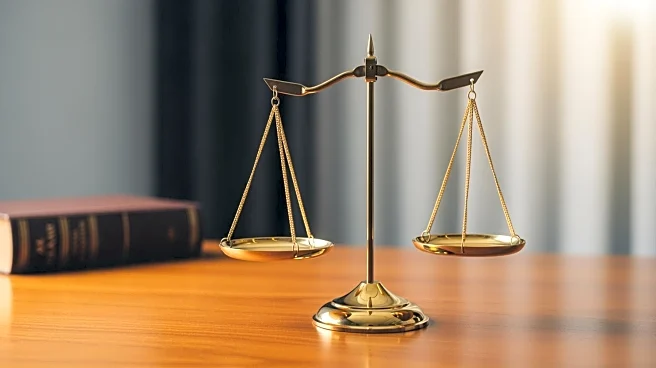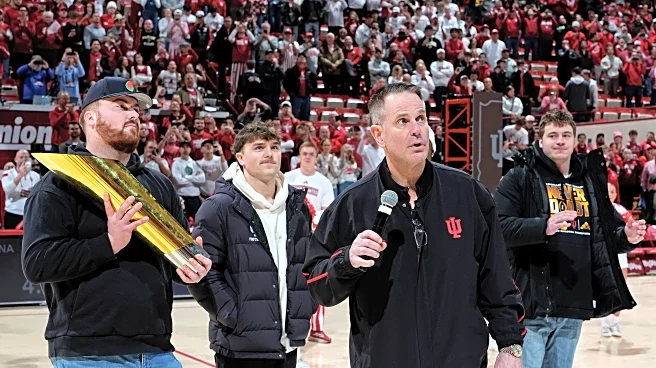What's Happening?
The Indiana Supreme Court has endorsed a set of 15 recommendations aimed at addressing the state's lawyer shortage, following a comprehensive study by the Commission on Indiana’s Legal Future. The recommendations include
the establishment of a Public Service Pathway Pilot Task Force, which will focus on increasing the number of public defenders and prosecutors. This task force will consist of experienced attorneys, representatives from legal service groups, prosecuting attorneys, the Indiana Department of Child Services, and Indiana’s three law schools. The Office of Judicial Administration will oversee the task force, which is expected to implement rule changes by 2027. Additionally, the court has directed collaboration with the Indiana Bar Association to consider consolidating loan repayment programs and initiatives to promote legal education. The American Bar Association has noted that Indiana ranks in the bottom 10 nationally for attorney availability, with only 2.3 attorneys per 1,000 residents.
Why It's Important?
The shortage of legal professionals in Indiana has significant implications for access to justice, particularly in underserved areas. By implementing these recommendations, the Indiana Supreme Court aims to enhance the availability of legal services, ensuring that residents have better access to public defenders and prosecutors. This initiative is crucial for maintaining the integrity of the legal system and ensuring that all citizens can exercise their legal rights effectively. The collaboration with educational institutions and legal associations is expected to foster a more robust pipeline of legal professionals, addressing both immediate and long-term needs. The focus on loan repayment programs and legal education initiatives may also attract more individuals to the legal profession, helping to alleviate the shortage.
What's Next?
The Public Service Pathway Pilot Task Force is set to begin its work, with rule changes anticipated by 2027. The task force will provide detailed parameters for law licensure, aiming to create a sustainable model for increasing the number of legal professionals in Indiana. Stakeholders, including the Indiana State Bar Association and the Indiana Judicial Conference, will collaborate on promoting legal education and addressing the attorney shortage. The success of these initiatives will depend on effective implementation and ongoing support from the legal community and educational institutions. Additionally, there may be discussions on establishing new law schools in the region to further address the shortage.
Beyond the Headlines
The closure of Valparaiso University’s School of Law in 2020 has contributed to the local shortage of attorneys, highlighting the importance of maintaining educational institutions that support the legal profession. The recommendations by the Indiana Supreme Court reflect a broader trend of addressing systemic issues within the legal industry, including the need for innovative practice models and professional support systems. These efforts may serve as a model for other states facing similar challenges, emphasizing the role of judicial leadership in fostering access to justice.









